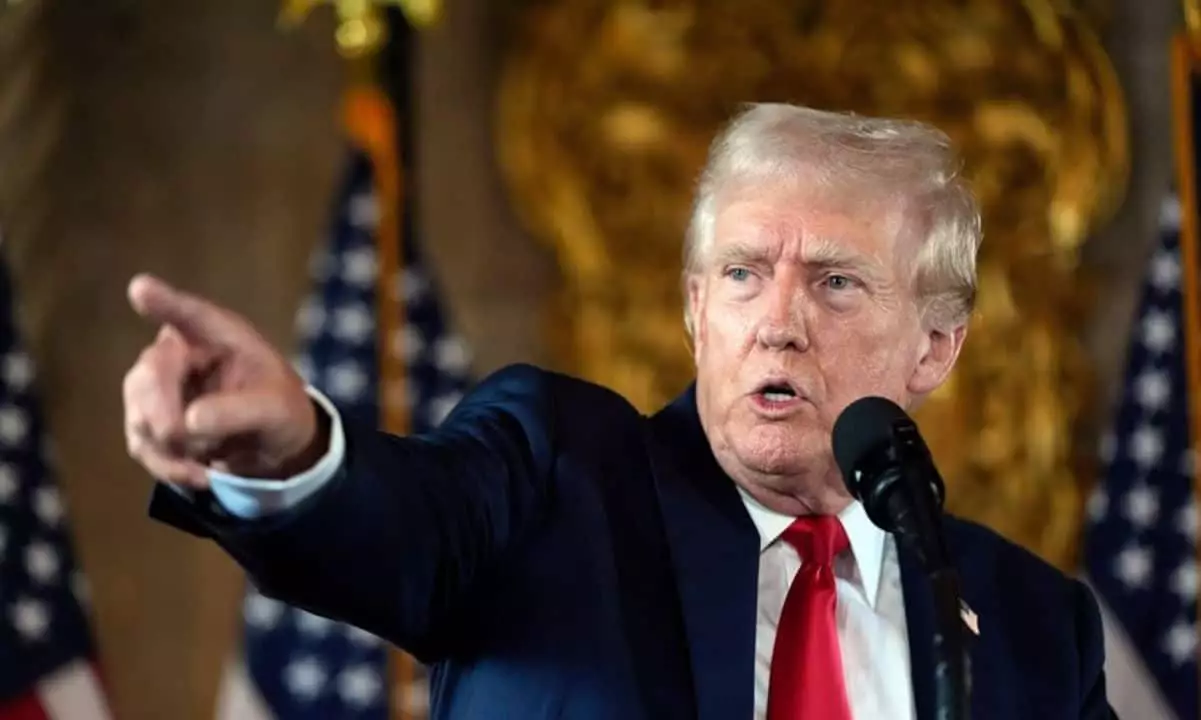In the rapidly evolving landscape of cryptocurrency and politics, high-profile investors are increasingly making substantial donations to political action committees (PACs) that align with their business interests. Recently, venture capitalists Marc Andreessen and Ben Horowitz made headlines by donating $2.5 million each to Right For America, a super PAC that champions pro-Trump policies. Their financial support reflects a strategic alignment with Trump’s “little tech agenda,” which they believe favors the crypto and startup ecosystem.
Moreover, Andreessen’s additional contribution of $844,600—a figure that meets the federal caps for individual donations—demonstrates an aggressive political stance that aims to shape the future landscape of cryptocurrency. These significant donations signal a growing trend among wealthy tech investors to leverage political influence for favorable regulatory environments that could substantially benefit their financial interests.
Interestingly, the political contributions from the tech sector are not monolithic. Horowitz stirred some intrigue with his recent declaration of intent to donate to Vice President Kamala Harris’s campaign. This unexpected maneuver raises questions about the inconsistency of crypto policies across different political figures, especially considering Harris’s sparse commentary on the crypto sector. The lack of clarity on her stance could suggest a gamble for Horowitz, potentially trying to sway her policies in a more crypto-friendly direction despite the risk of alienating some supporters.
In a peculiar turn of events, Chris Larsen, co-founder of Ripple, contributed an equivalent of $1 million in XRP tokens to Future Forward, a PAC aligned with Harris’s presidential ambitions. This contribution is all the more striking given the ongoing legal battles Ripple has faced with the Securities and Exchange Commission (SEC), an agency that Harris’s administration could influence. Such moves not only illustrate the complex tapestry of political affiliations in the crypto realm but also highlight the sometimes contradictory nature of financial support across party lines.
The Right For America PAC has successfully raised $27.8 million for its campaign efforts, with a cash reserve of $43.6 million poised for potential swing states like Arizona, Georgia, and Pennsylvania. These platforms play an essential role in the broader strategy for many tech investors, signaling a proactive approach to champion candidates who are perceived as promoting a lighter regulatory touch on cryptocurrency.
The trend of crypto-centric super PACs has gained traction as this financial sector seeks to assert its influence over regulatory frameworks that could dictate the future of digital assets. Organizations like Fairshake PAC and similar affiliates have collectively amassed over $200 million, reflecting the vital importance of political contributions in navigating the often treacherous waters of legislation in the crypto industry.
Overall, these substantial financial contributions not only underscore the increasing intersection of technology and politics but also highlight a new strategy for securing favorable regulatory conditions in the fast-paced world of digital assets. As the 2024 elections approach, the actions of influential investors in the crypto space will continue to be analyzed and scrutinized, not just for their potential impact on candidates but also on the entire future of cryptocurrency regulation in the United States.

